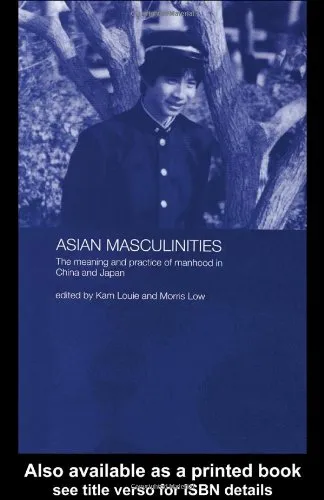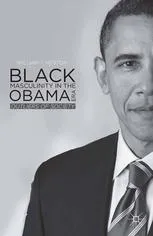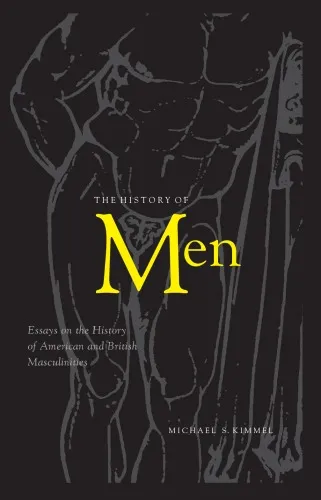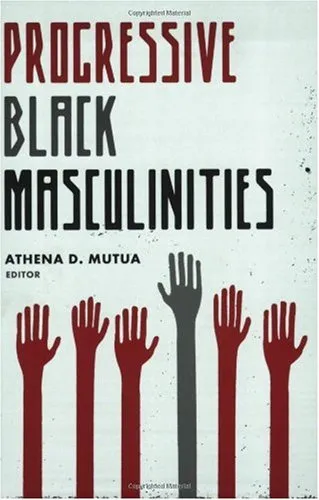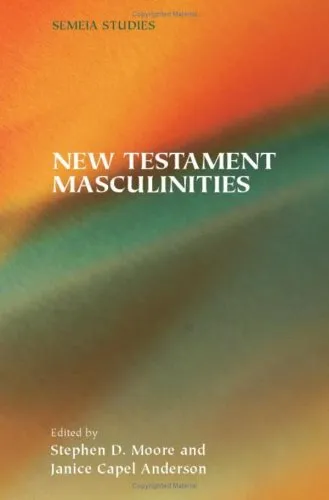Asian Masculinities: The Meaning and Practice of Manhood in China and Japan
4.0
بر اساس نظر کاربران

شما میتونید سوالاتتون در باره کتاب رو از هوش مصنوعیش بعد از ورود بپرسید
هر دانلود یا پرسش از هوش مصنوعی 2 امتیاز لازم دارد، برای بدست آوردن امتیاز رایگان، به صفحه ی راهنمای امتیازات سر بزنید و یک سری کار ارزشمند انجام بدینکتاب های مرتبط:
معرفی کتاب
کتاب Asian Masculinities: The Meaning and Practice of Manhood in China and Japan اثری برجسته از «کام لوی» و «موریس لو» است که به بررسی معانی و نمودهای مردانگی در بسترهای فرهنگی، تاریخی و اجتماعی چین و ژاپن میپردازد. این کتاب علاوه بر تحلیل مفاهیم مردانگی در این دو فرهنگ بسیار مؤثر، تلاش میکند تا دیدگاههای جدیدی در حوزه مطالعات gender و masculinity studies ارائه دهد.
خلاصهای دقیق از کتاب
این کتاب به بررسی این موضوع میپردازد که چگونه مفاهیم مردانگی در دو کشور بزرگ آسیایی، یعنی چین و ژاپن، شکل گرفتهاند و تا چه حد این مفاهیم تحت تأثیر عواملی چون تاریخ، اجتماع و سیاست بودهاند. بارزترین جنبه پژوهش کتاب، بهکارگیری رویکردی میانرشتهای است که از anthropology، sociology و literary studies بهره میگیرد. نویسندگان از مطالعه چهرههای تاریخی، داستانهای ادبی، و پدیدههای فرهنگی استفاده کردهاند تا نشان دهند چگونه masculinity در این جوامع مختلف در طول زمان تطور یافته است. کتاب به بررسی مفاهیمی همچون کنفوسیوسگرایی، بوشیدو (Bushido)، نقش ملیگرایی و حتی تأثیر مدرنیته بر تغییر تصور مردانگی در چین و ژاپن پرداخته است.
بهویژه در فصلهای ابتدایی، کتاب نشان میدهد چگونه تصور مرد ایدهآل در چین و ژاپن تضادهایی بنیادین اما مرتبط با هم داشته است. مثلاً در چین دوران سنتی، مرد بودن با تحصیل، اخلاق و معنویت تعریف میشد، در حالی که ژاپن بهویژه در دوران قرون وسطی مفهوم مردانگی را بیشتر با جنگاوری و نظم نظامی پیوند میداد. از سوی دیگر، نویسندگان خواننده را به دیدگاه جدیدی درباره مردانگی مدرن دعوت میکنند که به طرز چشمگیری از تغییرات اجتماعی چون صنعتیشدن، استعمار و نفوذ فرهنگ غربی تأثیر پذیرفته است.
نکات کلیدی
- تحلیل عمیق از نقش کنفوسیوسگرایی در مفهوم مردانگی در چین.
- بازنگری در سنتهای نظامی و فلسفی ژاپن، بهویژه بوشیدو، و تأثیر آن بر ایدئالهای مردانه.
- بررسی تأثیر استعمار غربی و مدرنیته بر مفاهیم محلی مربوط به masculinity.
- نشان دادن نقش روایتهای ادبی و فرهنگی در بازنمایی مردانگی در چین و ژاپن.
- رویکردی انتقادی به تداخلات و تفاوتهای gender در بافتهای فرهنگی آسیایی در مقایسه با مفاهیم غربی.
جملات معروف از کتاب
"Understanding masculinity in China and Japan is to examine history, myth, and socio-political constructs through the lens of tradition and modernity."
"Masculinities are not static; they evolve under the influence of changing societal norms and external pressures."
چرا این کتاب اهمیت دارد؟
کتاب Asian Masculinities یکی از معدود آثار منحصربهفردی است که بهطور خاص به مردانگی در بسترهای شرقی و آسیایی میپردازد. اکثر مطالعات پیرامون gender studies از دیدگاه غربی نوشته شدهاند و تفاوتها و پیچیدگیهای جوامع غیرغربی را نادیده میگیرند. این کتاب این شکاف را پر کرده و همزمان فرصتی برای خوانندگان فراهم میکند تا مفاهیم جهانی و محلی مردانگی را در زمینههای مختلف بسنجند. همچنین، این اثر برای پژوهشگران، دانشجویان و علاقهمندان به رشتههای مطالعات فرهنگی، gender و تاریخ آسیایی ارزشی بیبدیل دارد.
Introduction to "Asian Masculinities: The Meaning and Practice of Manhood in China and Japan"
Masculinity is a deeply rooted and culturally intricate concept that plays a vital role in shaping the identities, relationships, and societal structures of individuals. In "Asian Masculinities: The Meaning and Practice of Manhood in China and Japan," authors Kam Louie and Morris Low deliver a groundbreaking exploration of how masculinity is conceptualized and expressed within two of Asia's most influential cultures—China and Japan. This book embarks on a comparative journey across time, offering insights into the historical, philosophical, and modern dimensions of manhood.
By dissecting myths, traditions, and popular culture, the book provides a nuanced understanding of how local and global forces have influenced definitions of masculinity. It not only challenges Western-centric views of gender but also contributes to the broader discipline of gender studies by illuminating non-Western practices and ideals. With its interdisciplinary approach, "Asian Masculinities" appeals to readers across multiple fields, including sociology, history, anthropology, and cultural studies.
Detailed Summary
The book delves into how Chinese and Japanese perceptions of masculinity have evolved over centuries, shaped by Confucianism, Taoism, Buddhism, Western influences, and socio-political changes. The authors emphasize the importance of understanding masculinity not as a universal concept but as a cultural product shaped by specific historical contexts and ideologies.
In China, masculinity has historically been viewed through the binary of wen (cultural and scholarly refinement) and wu (physical prowess and martial power). These complementary ideals form the foundation of Chinese male identity, even as modernity has redefined these values under the pressures of urbanization, industrialization, and globalization.
Meanwhile, Japanese masculinity is explored through its feudal history, including the samurai code of bushido, which emphasizes honor, loyalty, and discipline. The book also dissects the rise of "salaryman" culture in post-war Japan and its impact on contemporary gender norms. The authors examine how these archetypes have adapted or resisted the increasingly Westernized concept of masculinity.
Throughout the book, Louie and Low draw on literature, film, art, drama, and modern media as key resources to demonstrate how masculine ideals are portrayed and perpetuated. By presenting a comparative analysis, the book highlights both the similarities and the distinctive ways in which masculinity is practiced in China and Japan.
Key Takeaways
- Gender identity is deeply influenced by cultural, historical, and philosophical contexts rather than being a universal attribute.
- The wen-wu binary in Chinese masculinity provides a unique framework to understand scholarly and physical ideals of manhood.
- Japanese masculinity’s evolution, from samurai values to modern salaryman culture, reflects the tension between traditional and modern influences.
- Asian gender ideals often intersect with Western notions of masculinity, creating hybrid identities in a globalized era.
- The study of Asian masculinities contributes to broader discourses in gender studies by providing non-Western perspectives on male identity.
Famous Quotes from the Book
"The wen-wu dyad is at the heart of Chinese masculinity, where scholarly refinement and martial valor balance the competing demands of intellectual and physical prowess."
"The Japanese salaryman is not simply an economic figure; he is a cultural construct embodying post-war Japan’s collective aspirations and anxieties."
Why This Book Matters
In a world increasingly interested in diversity and inclusion, "Asian Masculinities" stands as a critical text that broadens our understanding of gender beyond the Western paradigm. By focusing on the distinct pathways of masculinity in China and Japan, the book not only sheds light on their cultural histories but also challenges readers to reimagine gender in more global and diverse terms.
For researchers and students, this book offers invaluable insights and serves as an essential resource in gender studies, Asian studies, sociology, and cultural studies. For general readers, it provides rich and accessible narratives that unravel the historical complexities of manhood in two of the world’s oldest civilizations. "Asian Masculinities" is not merely an academic endeavor—it is a cultural lens that deepens our appreciation of identity, belonging, and societal expectations.
دانلود رایگان مستقیم
شما میتونید سوالاتتون در باره کتاب رو از هوش مصنوعیش بعد از ورود بپرسید
دسترسی به کتابها از طریق پلتفرمهای قانونی و کتابخانههای عمومی نه تنها از حقوق نویسندگان و ناشران حمایت میکند، بلکه به پایداری فرهنگ کتابخوانی نیز کمک میرساند. پیش از دانلود، لحظهای به بررسی این گزینهها فکر کنید.
این کتاب رو در پلتفرم های دیگه ببینید
WorldCat به شما کمک میکنه تا کتاب ها رو در کتابخانه های سراسر دنیا پیدا کنید
امتیازها، نظرات تخصصی و صحبت ها درباره کتاب را در Goodreads ببینید
کتابهای کمیاب یا دست دوم را در AbeBooks پیدا کنید و بخرید
1750
بازدید4.0
امتیاز0
نظر98%
رضایتنظرات:
4.0
بر اساس 0 نظر کاربران
Questions & Answers
Ask questions about this book or help others by answering
No questions yet. Be the first to ask!
